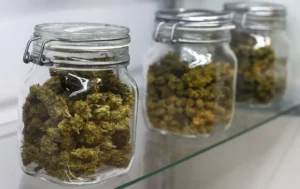Is Smoking Weed A Sin, The question of whether smoking weed is a sin has become increasingly relevant in modern society, particularly as more regions around the world decriminalize or legalize cannabis. This topic intertwines moral, cultural, and religious perspectives, prompting a diverse range of opinions. To understand this complex issue, we must explore various viewpoints surrounding the use of marijuana.
Historical and Cultural Context
Cannabis has a long history of use for medicinal, recreational, and spiritual purposes across various cultures. In ancient times, many civilizations utilized the plant for its psychoactive properties, believing it could enhance spiritual experiences or provide relief from ailments. However, in the 20th century, negative perceptions emerged, largely influenced by political agendas and societal norms. As a result, marijuana was stigmatized and criminalized in many parts of the world.
Religious Perspectives
When discussing whether smoking weed is a sin, it is essential to consider religious perspectives, as many people base their moral judgments on their faith.
- Christianity: The Christian view on smoking weed varies among denominations. Some Christians argue that using drugs is a form of self-harm, contradicting the biblical principle of caring for one’s body (1 Corinthians 6:19-20). Others may adopt a more lenient stance, emphasizing the importance of moderation and personal responsibility. The concept of “sin” in Christianity often relates to actions that separate individuals from God, leading to varied interpretations of whether cannabis use falls into this category.
- Islam: In Islam, the consumption of intoxicants, including drugs and alcohol, is generally prohibited. The Quran explicitly discourages behaviors that impair judgment or lead to harmful actions. Therefore, many Muslims would consider smoking weed a sin, viewing it as contrary to the teachings of Islam.
- Buddhism: Buddhism takes a more nuanced approach. While intoxication is discouraged as it can lead to attachment and suffering, some Buddhist traditions may view cannabis as a tool for meditation or spiritual exploration. The emphasis is often on mindfulness and the intention behind the use rather than the substance itself.
The Moral Argument
From a moral standpoint, the debate around smoking weed revolves around concepts such as personal freedom, harm reduction, and the impact on society. Advocates for legalization argue that individuals should have the right to make personal choices regarding their bodies, including the use of marijuana. They contend that responsible use can bring therapeutic benefits, reduce crime associated with illegal drug trade, and provide economic opportunities.
Conversely, opponents highlight the potential health risks associated with cannabis use, including addiction, mental health issues, and impaired judgment. They may argue that smoking weed can lead to negative consequences for individuals and society, prompting a moral obligation to discourage its use.
Legalization and Social Acceptance
As more countries and states legalize cannabis, societal attitudes are shifting. Many people now view marijuana as a legitimate substance, comparable to alcohol. This change has sparked discussions about the ethical implications of criminalizing a substance that many see as harmless or beneficial. The growing acceptance of cannabis is influencing how individuals interpret its moral and spiritual significance.
Conclusion
So, is smoking weed a sin? The answer depends largely on personal beliefs, cultural backgrounds, and religious teachings. While some view it as a sin based on their faith, others see it as a personal choice that should be respected. As societal attitudes continue to evolve, the conversation surrounding cannabis will likely remain complex and multifaceted. Ultimately, individuals must navigate this question through their moral compass, considering the implications of their choices on themselves and their communities.
This ongoing debate highlights the importance of open dialogue and understanding as society grapples with the changing landscape of cannabis use and its place in our lives.
You Might Also Like These:



